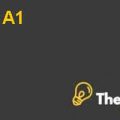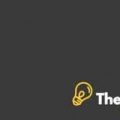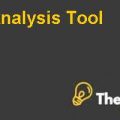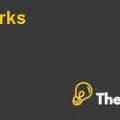
QWEST BOND SWAP OFFER Case Solution
INTRODUCTION
Philip Anschutz purchased Qwest in 1996. He was a very well known businessman, especially for his achievement in the oil industry. In 2000, the company acquired US West; a local fixed line phone provider in 14 states of America. From 1996 to 2000; the company went public in 1997, kept a normal pace, and adopted organic growth strategy for growth. The company had reconstruction program in order to cut costs. After these initial years, its sales started to decline by 22% from the end of 2001 in its forecasts of year 2002.
The company faced illiquidity problem and its net debt rose to $24.5 billion. In order to improve its liquidity and debt to equity ratio and to meet short-term debts deadlines, the top management at Qwest decided to offer its institutional bondholders to exchange their unsecured bonds with secured ones. This case is about the tender offer whether bondholders should accept this offer or not to improve the current worsening position of the company, because the company has recently reported a net loss of $4billion. The company share price is continuously dropping, the share price dropped by 88% within two preceding years, the redemption or transfer of some of its debt is of high importance. Otherwise, the future of the company is in danger. At least what it is seems like, after considering current position of Qwest.
PROBLEM STATEMENT
The company is facing Precarious level of illiquidity, the company current debt is at its peak, which is $24.5 billion; moreover, stock price of the company is continuously dropping, the stock price dropped from $40.875 to 14.24 in 2001 and 4.84 in 2002. There is a growing need to reduce some of its debt; because currently, the going concern assumption of Qwest seems invalid.
BOND TENDER OFFER ACCEPT OR REJECT?
Qwest is offering its shareholders a tender offer to exchange bonds in order to reduce its overall debt level, Qwest is also trying to reduce its level of debt in order to improve its short term capability to meet debt deadlines when they fall due and improve its liquidity position. There are number of scenarios for institutional shareholders to consider; first of all, let’s suppose if they don’t accept Qwest offer, then what? The company will liquidate through bankruptcy or the company can operate as a going concern under tight conditions, where the company will somehow manage to conduct its operations and will operate at loss or little profit. The institutional bondholders are more likely to accept offer, which is beneficial for them and this depends on detailed analysis of the offer under consideration.
The two attractive features of the bond Qwest is offering to institutional investors are that they have high coupons and are secured; on the other hand, the existing bonds are unsecured. Therefore, in case if the going concern assumption is valid, then if 1000 face value bond holders accept tender, then they can change unsecured bonds to secured ones. Secondly, they shortened the period of some long-term bonds in order to reduce their default risk. After changing maturity of the bond, there will less time to hold a bond. This way, the investor can face lower risk as compared to if investor hold bond for longer period. In return, by accepting tender offer, the liquidity of the company will also improve and up to some extent, the cash inflows to investor related to bond will be secured because Qwest believes that their performance will improve after successful exchange of bond, which will ultimately reduce debt burden of Qwest...................
This is just a sample partial case solution. Please place the order on the website to order your own originally done case solution.













